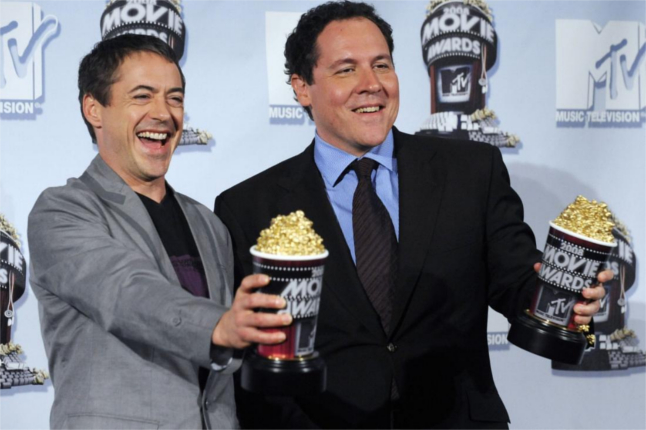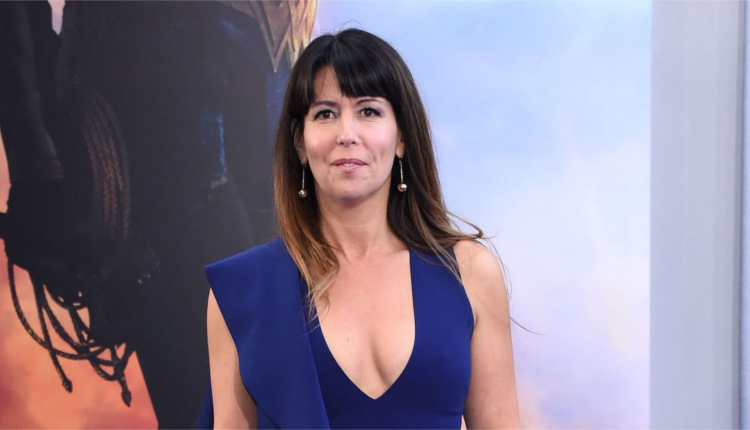The Blockbuster Trap | Can Indie Directors Survive the Switch to Bigger Budgets?
Back in 2008 Kevin Feige had a lot riding on Iron Man. The producer and president of Marvel Studios had had a hand in a number of successful franchise launches (Blade, Spider-Man, X-Men) but Iron Man was something different. Something bigger. It wasn’t just launching a franchise. It was launching a cinematic universe. Success would steamroll an ambitious and aggressive campaign of film development with the purpose of establishing a shared world between different projects, culminating in the crossover spectacle of The Avengers. It isn’t a spoiler to say Feige succeeded. But success was no guarantee. If Iron Man had flopped then the modern cinematic landscape wouldn’t look anything like it does now and Marvel wouldn’t be the powerhouse it is today. Iron Man was a risk. A huge one.
The hands that Iron Man was entrusted to were that of Jon Favreau, a surprising choice when you remember who Favreau was at the time. Favreau was a well regarded director but he was by no means a heavy hitter or the safest choice to spearhead the ambitious Iron Man. He was a filmmaker who had come out of the indie circuit starring in Swingers and subsequently directing Made. His biggest success at that point was the family film Elf. His one foray into action/adventure filmmaking was Zathura: A Space Adventure, a well received film though a commercial failure. There was no doubt as to Favreau’s capabilities as a director but he was not a proven hit-maker and Feige needed a hit. Turns out he chose wisely. Iron Man smashed the box office and Favreau has gone on to be one of the more consistent commercial directors working in Hollywood.

Iron Man ushered in a new blockbuster era, one built on superhero franchises and shared universes, but it also kicked off another trend. The choice of Favreau, an indie director with little experience in the big leagues, is a choice that has become the norm since, especially so in the last few years. A glance at the directors lined up to helm future blockbusters does include some industry giants like Zack Snyder but these filmmakers are more commonly drawn from the indie world, such as Taika Waititi (Hunt For The Wilderpeople) who is directing the upcoming Thor: Ragnorak. As these film get bigger, the directors chosen get smaller, a trend that ideally should spotlight young talent and allow them to project their unique perspectives on a larger canvas. This world doesn’t run on ideals though.
Just two years ago Colin Trevorrow was on top of the world. His Sundance sensation Safety Not Guaranteed booked him the job of reigniting the Jurassic franchise with Jurassic World, a mediocre (and somewhat controversial) movie that became the fourth highest grossing film of all time. That success landed him the job of directing the still untitled Star Wars Episode IX. Trevorrow’s hiring was not warmly received by fans but there was no blatant reason to suspect that Trevorrow was not capable of doing justice to the Star Wars franchise. However, The Book of Henry changed that. Trevorrow’s return to indie film with the small family comedy/drama/thriller was an attempt to reassert his capabilities as a filmmaker outside the blockbusters he was moving towards. He failed. The Book of Henry was bad. Spectacularly bad. So bad that Vox‘s Todd VanDerWerff said that “it feels cursed.”
The suspicion that Trevorrow was not fit to direct an instalment of Star Wars became a panic, leading to his firing earlier this month. Trevorrow’s firing is not exactly surprising considering the backlash against him among the fan-base and that the Star Wars camp didn’t have much time for him either (allegedly the Star Wars brand manager Kathleen Kennedy found him impossible to work with). Trevorrow’s firing was almost universally celebrated (honestly, you really shouldn’t applaud some guy losing his job) but this was another damning blow to the Star Wars brand. Star Wars: Rogue One was another box office smash but one plagued by rumours of discord between director Gareth Edwards and Disney executives who reshot much of the film with Tony Gilroy in lieu of Edwards.
The Han Solo film has also had a rotten go of it with the mad-cap comedic direction of the mad-cap comedic directing duo Phil Lord and Chris Miller costing them their jobs, replaced by industry veteran Ron Howard. If Rogue One proved anything it’s that the commercial success of these films won’t necessarily be impugned by discontent behind the scenes but so frequently falling out with talent you placed trust in doesn’t speak well to your brand. And Star Wars is not an anomaly. Josh Trank famously fell out with Fox over the disaster that was Fantastic Four. Patty Jenkins was fired from Thor: The Dark World, a decision that angered star Natalie Portman. Michelle MacLaren was fired from Wonder Woman, replaced by the aforementioned Patty Jenkins. Rick Famuyiwa left The Flash over creative differences. Edgar Wright sunk two years into Ant-Man until Marvel’s meddling forced him to leave the project. Studios have no problem attracting interesting talent into their homes, but these studios might not be the best hosts to their guests.

For both Rogue One and Han Solo Disney have abandoned the young talent they originally opted for in favour of industry veterans (similarly, Trevorrow will be replaced by The Force Awakens director J.J. Abrams). The two obvious questions that arise are (1) why hire young talent, and (2) why are they being replaced so consistently? Why take a risk on raw talent rather than relying on the guidance of experienced directors well versed on working on major productions? The fresh perspective brought to the table by an inexperienced filmmaker can result in critical and commercial success (James Gunn’s Guardians of the Galaxy) but it can also lead to ho-hum launches and reboots (Marc Webb’s Amazing Spiderman comes to mind). More troublingly, these filmmakers can occasionally just be ill-suited to working on a much larger scale than they are accustomed to, as was the case with Josh Trank. Film is a business and understanding that can be a difficult lesson for these directors to swallow.
[perfectpullquote align=”right” cite=”” link=”” color=”#F42A2A” class=”” size=””]Disney have abandoned the young talent they originally opted for in favour of industry veterans (similarly, Trevorrow will be replaced by The Force Awakens director J.J. Abrams). The two obvious questions that arise are (1) why hire young talent, and (2) why are they being replaced so consistently?[/perfectpullquote]
For studios like Marvel and Disney there is effectively two main motivating factors for hiring young and for hiring outside the realm of action. Signing onto a franchise will often come with many stipulations as every one film requires a certain amount of legwork to set up other prospective franchises and to connect to a larger picture. A director like Edgar Wright often finds such demands to be unacceptable. More inexperienced directors who are just making their way into the industry are a bit more accepting of such conditions. These young filmmakers typically lack a style as distinctive as Wright’s and are also more accepting of embracing the prevailing visual aesthetic of a studio so that these films can cross over more naturally. Those who choose to pursue something more individual frequently find themselves fired. It’s tantamount to directing an episode of television but on a larger scale. It’s your name under “Directed by” but it’s far from yours. You’re just a gun for hire.
What these studios are also looking for are people who have demonstrated the ability to create interesting characters. Modern blockbusters can frequently be quite character driven despite their reputation as reliant on spectacle alone. Marvel film’s succeed largely due to their characters and are actually consistently dull when it comes to action set-pieces. The young Sundance group of filmmakers that have become the go-to choices for spearheading superhero projects are well suited to these requirements and reinforce the fact that these movies are frequently more enjoyable when depicting their stars in conversation rather than in combat. These blockbusters have become big screen sitcoms, comfortable exercises in formula with a cast of unchanging characters in an unchanging world. They satisfy but just about.
This model has obviously been a fruitful one for studios both in terms of commercial success but also as a method of solidifying their own power over their property. This has always been true of big-budget filmmaking but producers and executives hold a lot of sway over creative conditions and as such they have virtually become the true auteurs behind these films. It is they who have grand visions for these films and how they fit together and if a director is going to challenge that status quo then they will be cut out quick. Yet as directors are increasingly fired from these tentpole projects it casts doubt on the sustainability of this as a means of doing business. Will filmmakers continue to sign up for these opportunities if studios continue to attract negative headlines over restricting the creative freedom of filmmakers?
Following the sensational success of Get Out, a film made all the more impressive that it was the directorial debut of comedian Jordan Peele, Peele was quick to dismiss the idea that he would be signing onto directing any franchises. His interest was in original ideas and projects that promised him full creative freedom. Directors who don’t match Peele’s success or fame shouldn’t be ridiculed for taking on blockbusters as this move can be advantageous to them. But Peele should be celebrated for pushing for originality in an industry that increasingly doesn’t value anything other than toeing the company line. For years now studios have been swallowing up potential talent and utilising their talents to create a standardised product with little variation. As this industry has grown so have the stakes and now any misstep can provoke a dismissal that does tremendous damage to the career of these inexperienced filmmakers. This cycle will likely continue for some time unabated. But maybe directors will start choosing to go it alone and develop their own voice away from the meddling that comes with big budgets. Maybe these directors will stay small and get success on their own terms while these studios begin to implode. Maybe the success of Get Out can become a norm and not remain an anomaly. These are all possibilities. The reality is far less promising.

